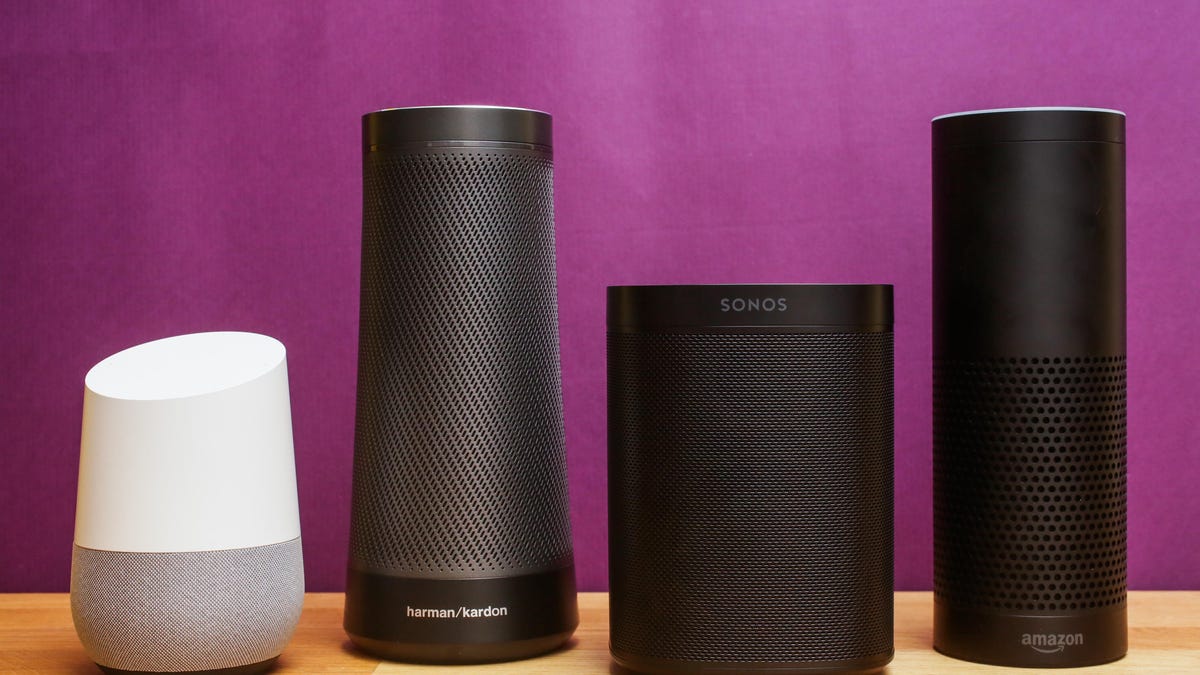Universal Music CEO to artists: Fine-tune your lyrics for smart speakers
Lucian Grainge talks smart speakers, streaming and social media on stage at MWC in Barcelona.

Picture the scene: You're in your kitchen, you're cooking dinner and you want to dance around to that tune that's been in your head all day -- the one that seems to be playing in every shop, every cafe you walk into.
"Alexa," you say to your smart speaker, "play…"
But the name of the song escapes you. You can hum the melody and the chorus. You can't stop thinking about it. But the title? It's just not coming to you, and it's not the first time that's happened, either. This is the reason that Gold by Spandau Ballet was your most-played song on Spotify last year.
The popularity of voice-activated smart speakers has rocketed since Amazon first introduced the Echo at the end of 2014. But when it comes to finding new music, or playing a song you wished you'd noted the name of when you heard it on the radio the other day, they're not necessarily set up to help you find what you're looking for. You really need to know precisely what you want to listen to before you activate the device.
Lucian Grainge being interviewed on stage at MWC 2019 in Barcelona.
For music makers, these device present both an opportunity and a risk, said CEO and Chairman of Universal Music Group Lucian Grainge, speaking at Mobile World Congress in Barcelona on Monday. "The amount of traffic there is with them is incredibly compelling," he said. But, he added, it can be a challenge for people to find what they're looking for. "Our experience is people can't ask for a song when they don't know what title is."
But Grainge, who has attracted many of the world's most popular artists into his fold, has a little tip for songwriters and musicians who want people to stream their music through smart speakers. He uses the example of the timeless hit, perennially popular among the global toddler population, "How Much Is That Doggy In The Window?" to explain that the title of a song must be front and center in a song's lyrics.
"If you've got something that is a brand, is a soundtrack, is a song where the title is in the chorus and the melodies, we're seeing really explosive data and activity," he said. "That helps us in the creative process because it enables us, with the data and with consumption, to use the technology to say to the talent, you need to have something as basic as the song title [...] in the chorus."
Like other labels, UMG's fortunes has been on an upswing in the last four years thanks to the popularity of streaming, after labels' business was decimated by years of digital downloads elbowing out lucrative physical sales like CDs.
Grainge thinks the reason the company has thrived in the streaming, he said on stage at MWC, is that even during down times it consistently invested in artists and talent, constantly took risks and remained open to new ideas. This included the rise of streaming, which has been a bone of contention for many artists, who do not feel like the model fairly compensates them for their work.
The rise of mobile devices "completely changed and redefined how media is consumed and enjoyed," said Grainge, as well as the way lawyers, finance experts and artists all understood how the money comes in. "You have to remember that the business has been a transaction business for 50, 60, 70 years," he said.
There's still an enormous opportunity for growth in streaming by tapping into less-saturated markets in Africa, Latin America and parts of Asia, said Grainge. He's also optimistic about new technologies that allow musicians to have a direct relationship with fans.
Last November, Grainge signed Taylor Swift, an artist known for using social media to cultivate fan relationships, to Republic Records. As part of her deal with UMG, Swift ensured that if the company ever sells its shares in Spotify, the profits will be distributed among artists and the money should not be recoupable against their contracts.
Universal stars dominate the social media rankings in terms of follower count. Swift alone is in the top 10 most-followed artists on Twitter, Facebook, Instagram and YouTube. Grainge said he's proud to have her in the UMG family.
"She is a unique talent," he said. "Her ability to talk to her audience, to talk to a global audience, is really fairly unprecedented."
Joan Solsman contributed to this report.

